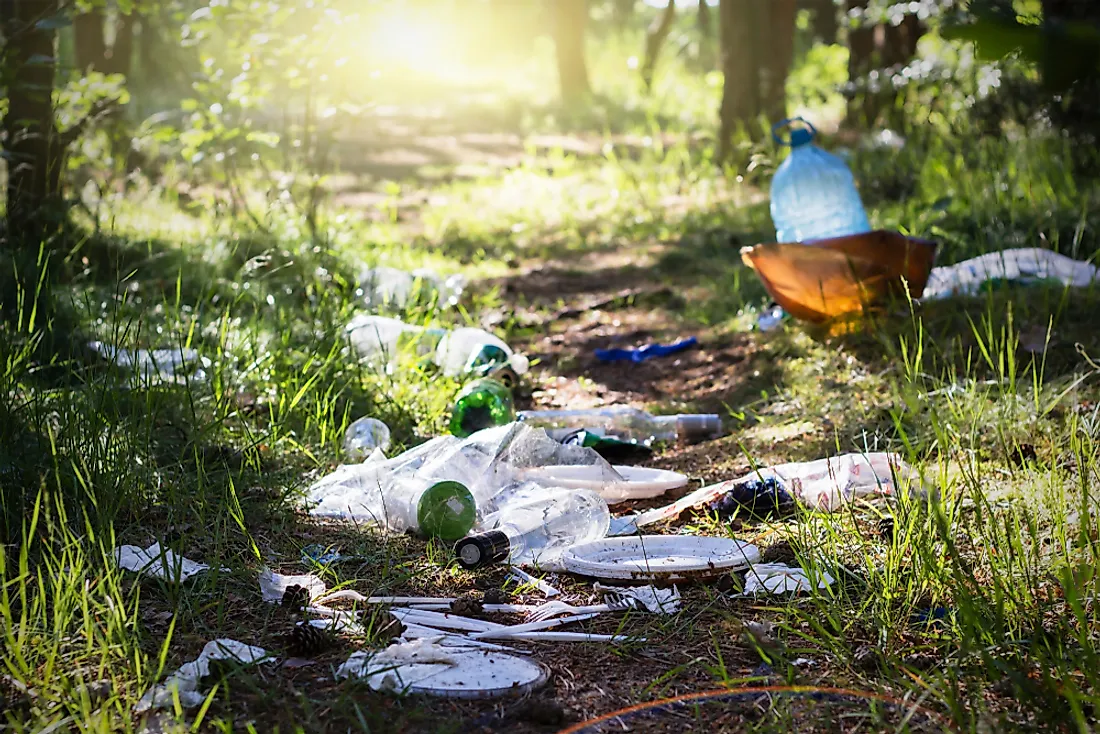What Are The Harmful Effects Of Littering?

When waste or discarded substances are disposed of in an improper manner in unwanted locations, the process is called littering. It can be classified as a type of pollution. Littering can have disastrous consequences on the environment. Here is a list of some of the effects of littering:
Litter Creates Visual Pollution
Litter damages the aesthetics of a place. It causes visual pollution as the presence of litter makes a place unclean and hence unpleasant to the eyes.
Cleaning Litter Is Costly To The Economy
If waste is disposed at the designated areas by the public, then cleaning the waste becomes relatively easy for the concerned personnel. However, when litter needs to be cleaned, extra funds are required to employ personnel to clean-up the littered area. Thus, litter clean-ups costs the economy more than cleaning up waste disposed of in the proper manner by responsible citizens.
Littering Leads To Tension In Society
Often, irresponsible citizens tend to litter the streets and other public properties or even private properties of their neighbors. When other members of the public complain against such littering, the guilty often go into denial mode or exhibits adamant behavior. Thus, tensions are born between members of society which can also lead to violent clashes in extreme cases.
Littering Can Lead To Soil, Water, And Air Pollution
Hazardous chemicals can leach out of the litter and pollute the soil and water bodies located nearby. These toxins then enter the human body via the food chain. The contaminants also stunt plant growth and cause health issues in animals living in the area. Littering can also lead to air pollution. Often, the litter is put on fire as an easy way to get rid of the litter. The burning process can release significant volumes of toxic particulate matter and gases into the atmosphere. The pollutants can then cause respiratory problems and other health problems in humans and other living beings.
Litter Can Serve As Breeding Grounds For Mosquitos
Several items of litter like discarded vehicle types can serve as breeding grounds for mosquitos. For example, when rainwater can collect in discarded tires and serve as a mosquito breeding ground. These insects can spread several diseases like malaria, dengue, West Nile virus, etc. These vector-borne diseases can spread like an epidemic and kill thousands of people within a short period of time.
There Is A Possibility Of A Fire
When the litter is composed of flammable materials, a small spark or lightning can immediately start a fire. Such fires can become uncontrollable and lead to heavy losses of lives and property. Wildfires can also result from such accidental lighting up of litter. For example, discarded cigarette buttes that have not been fully put off can give rise to fires.
Litter Can Cause Accidental Harm To Vehicles And Human Health
Accidents can result when vehicles come in contact with litter. Sharp objects, toxic chemicals, and other discarded objects can cause physical harm to humans. Pathogens in the litter can lead to an epidemic.
Littering Is Responsible For The Death Of Millions Of Animals
Many animals die each year due to littering. Objects present in the litter can be ingested by animals and produce toxic effects inside their bodies. Animals can get entangled in littered substances and die a slow and painful death. Items like broken glass, pins, and other sharp objects present in the litter can injure animals who tread on them unknowingly.











